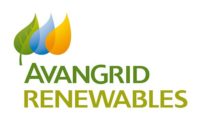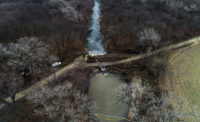Oil giant ConocoPhillips said Dec. 22 it will move forward to develop the estimated $8 billion to $10 billion Willow drilling project in Alaska's North Slope, approving funding needed to reach the first oil production that includes an estimated $900 million for planned winter construction of the much-disputed site.
The final investment decision follows by just days a ruling by the U.S. Court of Appeals in San Francisco to deny an injunction requested by project opponents to stop the winter work while judges decide the merits of their lawsuit to halt Willow development entirely as a major climate change risk.
The U.S. Interior Dept. had approved in March a scaled down version of the project, which is still expected to produce 600 million barrels of oil over its 30-year lifetime, the agency said.
“With this project authorization, we’ve begun winter construction,” ConocoPhillips Chairman and CEO Ryan Lance said in a statement, noting the project could create more than 2,500 construction jobs.
All of the project's winter 2024 construction and support contracts have been awarded, Dennis Nuss, a company spokesman told ENR. The company did not release the names of contractors. Detailed project engineering was described by a company spokeswoman last summer as "well advanced." Andy O’Brien, ConocoPhillips senior vice president of global operations, said on the firm's Nov. 2 quarterly earnings call that three-quarters of those contracts are on a “lump-sum basis or unit rate.”
Ice road construction began Dec. 3, with other winter construction on schedule, including opening of the Willow mine site, gravel road construction and pipeline installation, Nuss said. About 800 owner and contractor staff are currently working, which will ramp up to about 1,800 workers for the 2024 construction season, he noted. State filings by ConocoPhillips indicate that it plans to begin installation of vertical supports for field pipelines in January, with line construction to continue through early 2027.
However, not clear as of Dec. 28 is the status of federal permits needed by the developer for key seismic work on Willow site land managed by the Interior Dept. that can only be done in the winter.
ConocoPhillips has federal leases for Willow, which is within the National Petroleum Reserve on the North Slope—the largest area of public land owned by the U.S. government. The reserve is designed specifically for oil and gas development, with a 1976 law creating special rules to allow energy extraction, but also mandating some areas set aside for “maximum protection” of the environment, according to the Washington Post.
The project includes hundreds of miles of roads and pipelines, airstrips, a gravel mine, and a new processing facility on about 499 acres.
Environmental and local indigenous groups fought the project and sued after its approval, arguing the government failed to consider direct and indirect climate risks and harm to wildlife and subsistence hunting, also violating provisions of various federal laws.
Judge Sharon Gleason of the U.S. District Court in Anchorage upheld the government approval in November, a ruling opponents then appealed. Oral arguments before the Ninth Circuit appellate court to determine the broader Willow suit outcome are set for Feb. 5, following judges' Dec. 18 order to deny the winter construction halt, with no accompanying opinion.
As that litigation proceeds, winter work also is underway on another North Slope oil project—the estimated $2.6-billion first phase of the Pikka production site, being developed on state land by energy firms Santos and Repsol and expected to add about 80,000 barrels per day of new oil in 2026. About 1,000 workers will be building field gathering lines and pipelines this winter, the developers said.
Price-Gregory International is the project contractor for pipeline and vertical support installation and construction, while Worley Alaska is fabricating a facility in Anchorage to grind and inject drill wastes, with building camp units also to be built in the Matanuska-Susitna Borough, according to a local report.
Santos CEO and Managing Director Kevin Gallagher said Pikka would have a net-zero emissions goal by 2040, in the the firm's 2022 final investment decisi0n announcement.







Post a comment to this article
Report Abusive Comment